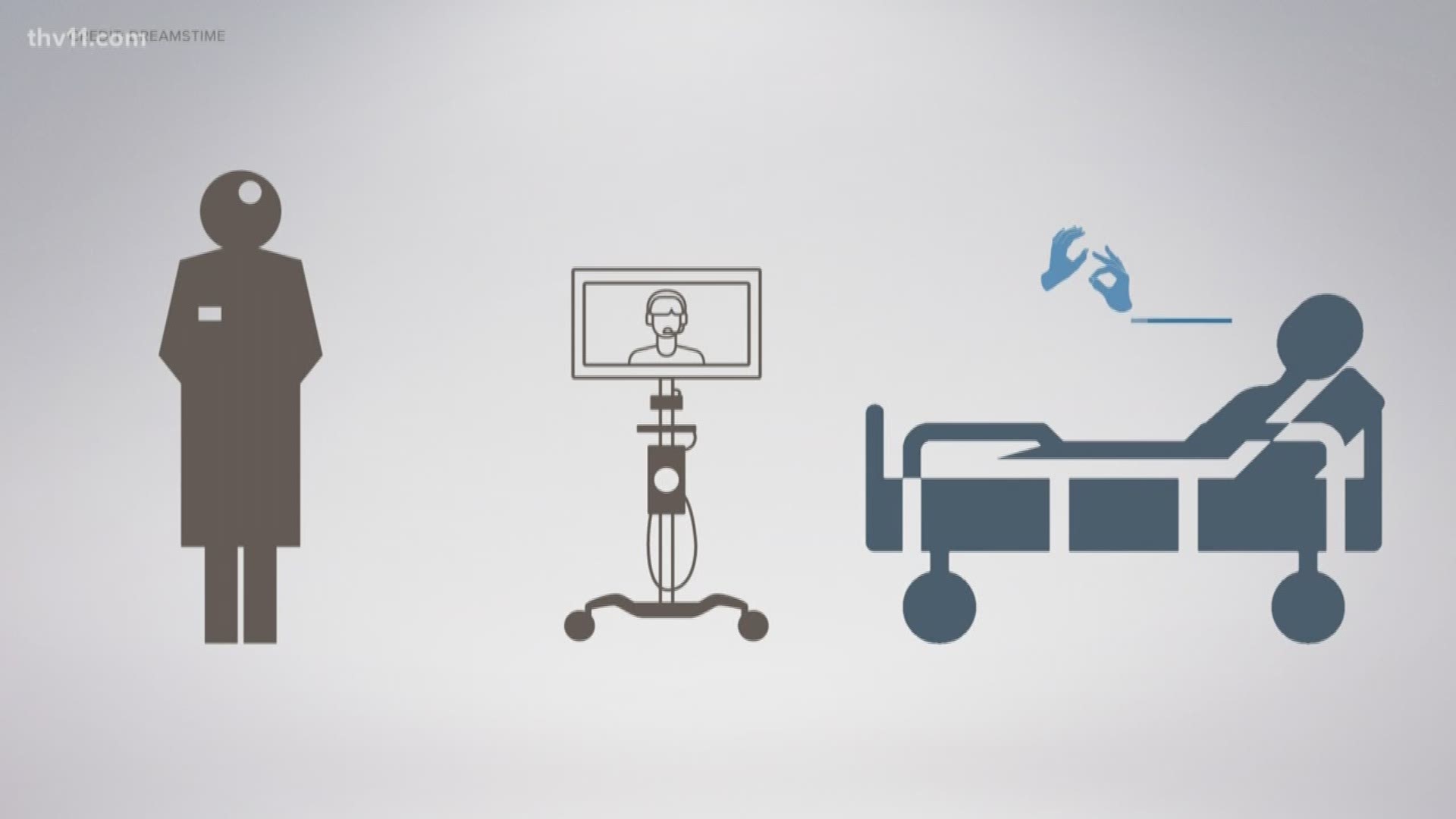HOT SPRINGS, Ark. — An unfortunate reality for so many in the deaf community is the fact that the average stranger cannot understand them.
Sometimes there are challenges when it comes to receiving effective communication in settings like a hospital. One woman is sharing her experience, turning to us because she wanted to know if her rights were violated.
Catching up with friends and sharing stories comes naturally.
But as you can imagine, being deaf in a hearing world presents its own set of challenges.
It was a recent trip to the emergency room that left one woman in central Arkansas looking for answers.
On September 1, the woman— who is deaf—went to the emergency room. In order to ask the nurse for an interpreter, she had to hand-write a note.
“A lady brought in a VRI… this isn’t what I asked for. I want an in-live interpreter,” she signed.
VRI stands for video remote interpreting and is a video telecommunication service that uses a device to allow a hard of hearing person to communicate through an interpreter remotely.
For her, the screen was too small.
"I can’t really see…”
She wanted to know if her rights were violated.
According to Thomas Nichols, the Director of Legal Advocacy Services at Disability Rights, the responsibility should be on the institutions deaf rely on to provide a live in-person interpreter.
By law, the Americans with Disabilities Act requires any business with public accommodations, like a hospital, to provide effective communication.
That communication is something a lot of people in the deaf community have complained about to Spa Area Independent Living Services.
"We were wanting to work with them to improve their communication with the deaf community," said Executive Director of Spa Area Independent Living Brenda Stinebuck. "We received no response whatsoever.”
However, this particular hospital did not violate a law. Their policy says “hearing-impaired patients can indicate the type of communication they prefer." It goes on to say, “the hospital provides access to sign language interpreters with Language Access Network via Video Remote Interpretation (VRI).”
But there is a gray area left up to interpretation when it comes to defining what exactly “effective communication” means.
Nichols said anytime this gray area, especially in places like hospitals, there are going to be differences of opinion about the definition.
"We would love to see the law change but I’m not sure that’s ever going to happen,” said Nichols.
“I’m not asking to take away the VRI and back to just a live interpreter. I just want a VRI to have an improvement for the deaf community to make us satisfied with their services,” the woman signed to us.
If you have similar complaints, you can contact the Department of Justice, the Southwest ADA Center, or hospital administration.
If there’s something happening where you live, we want to hear from you.
Just email us at 11listens@thv11.com or reach out to Marlisa Goldsmith directly on Facebook or Twitter.
MORE 11 LISTENS:

